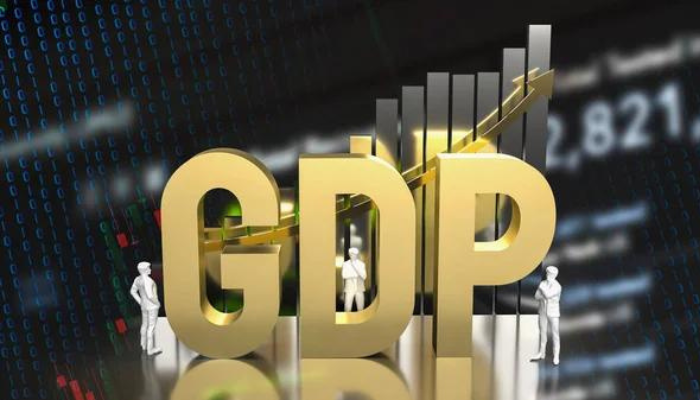Financial services and investments: Engines of Africa’s accelerated GDP growth
Africa’s growth story is shifting. As the continent’s youthful population, digital transformation, and entrepreneurial energy expand, one sector increasingly stands out as both a catalyst and connector of opportunity: financial services and investment. From mobile banking in Kenya to fintech in Nigeria, and pension reform in South Africa to sovereign wealth strategies in Rwanda, the financial services industry is becoming a cornerstone of Africa’s economic resilience and a powerful accelerator of GDP growth.
No country can thrive without a dynamic and inclusive financial ecosystem in today’s global economy. For Africa, developing robust financial systems is no longer optional—it is essential for unlocking capital, empowering citizens, supporting businesses, and attracting global investment flows.
The role of financial services in driving economic expansion
Financial services act as the circulatory system of a modern economy. They mobilise savings, allocate credit, facilitate transactions, enable investment, manage risk, and support public and private enterprises. A well-functioning financial sector strengthens macroeconomic stability, boosts productivity, and improves the capacity of governments to fund infrastructure and social services.
Read also: Nigeria’s GDP Reporting Crisis: When Data Delays Undermine Economic Credibility
According to the IMF, financial deepening—the increased provision of financial services relative to GDP—directly correlates with economic growth. Countries that have achieved sustained growth in recent decades have done so on the back of a vibrant financial sector.
Yet, in much of Africa, financial inclusion remains limited. Over 350 million adults on the continent are still unbanked, and many small and medium enterprises (SMEs)—the lifeblood of African economies—struggle to access affordable financing. Bridging this gap is a crucial step toward inclusive and sustainable GDP growth.
The rise of fintech and digital financial inclusion
One of Africa’s greatest recent success stories is the explosive growth of fintech. Technology is democratising access to financial services, from mobile money platforms like M-Pesa in Kenya and MTN MoMo in West Africa to digital lending, savings, and insurance apps across the continent.
Fintech has not only increased convenience and reduced costs but has also created entirely new value chains and employment opportunities. According to McKinsey, Africa’s fintech revenues are projected to grow by 10% annually, reaching over $230 billion by 2025.
This digital revolution supports GDP growth by formalising the informal economy, increasing transaction volumes, and boosting consumer confidence. Importantly, it also provides governments with new tools for tax collection, social transfers, and financial transparency.
Investment flows: Fuel for transformation
Beyond banking, Africa needs domestic and foreign investment capital to fund infrastructure, innovation, manufacturing, health, education, and green energy. Accelerating GDP growth requires long-term investments in productivity-enhancing sectors.
Private equity, venture capital, sovereign wealth funds, pension funds, and diaspora bonds offer vital financing sources. Encouragingly, African start-ups raised over $5 billion in 2022 despite global economic headwinds, signalling growing investor appetite.
Moreover, domestic capital markets are maturing. Nigeria, South Africa, Kenya, Egypt, and Mauritius are among the countries building stronger stock exchanges, regulatory frameworks, and investment vehicles. These platforms channel savings into productive ventures, reduce dependence on aid and debt, and support entrepreneurship and innovation.
Catalysts for a thriving financial sector
To harness the full potential of financial services and investment, African policymakers and business leaders must prioritise key enablers:
1. Regulatory reform and governance: Transparent, consistent, and investor-friendly regulations are essential to build trust and attract capital.
2. Financial literacy and inclusion: Citizens must be empowered to engage with financial systems confidently through education, incentives, and simplified products.
3. Public-private collaboration: Governments and financial institutions must co-create solutions for economic and developmental goals.
4. Digital infrastructure: Broadband access, cybersecurity, and digital ID systems must be expanded to enable the next wave of fintech innovation.
5. Long-term vision: Countries must develop and implement financial sector development plans aligned with their national economic strategies.
Read also: Tackling corruption: A critical pathway to accelerating GDP growth in Africa
Finance for development and resilience
A vibrant financial sector is not just about profits—it’s about people. Access to credit allows a farmer to scale operations. A working insurance system helps families recover from shocks. A pension fund provides security for the ageing population. An SME loan creates jobs in underserved communities. This is the real face of financial services in Africa’s development journey.
Moreover, finance is the connective tissue that links all other growth sectors—agriculture, housing, health, manufacturing, and trade. Without investment and capital, even the most ambitious plans remain dreams on paper.
Conclusion: Unlocking Africa’s financial future
As Africa navigates a post-pandemic recovery, climate change, and shifting global geopolitics, the financial services and investment sector will be a key driver of resilience, growth, and transformation.
To accelerate GDP growth, the continent must deepen its financial systems and ensure they are inclusive, innovative, and integrated. This means leveraging technology, attracting long-term capital, and building institutions to power sustainable development for future generations.
Africa’s financial future is not just about numbers—it’s about unlocking potential, driving prosperity, and ensuring no one is left behind in the journey toward economic empowerment.
Prof. Lere Baale is a leadership strategist and transformation expert who advocates for sustainable development across Africa’s public and private sectors. He is the CEO of Business School Netherlands International in Nigeria and a thought leader in economic systems innovation.





